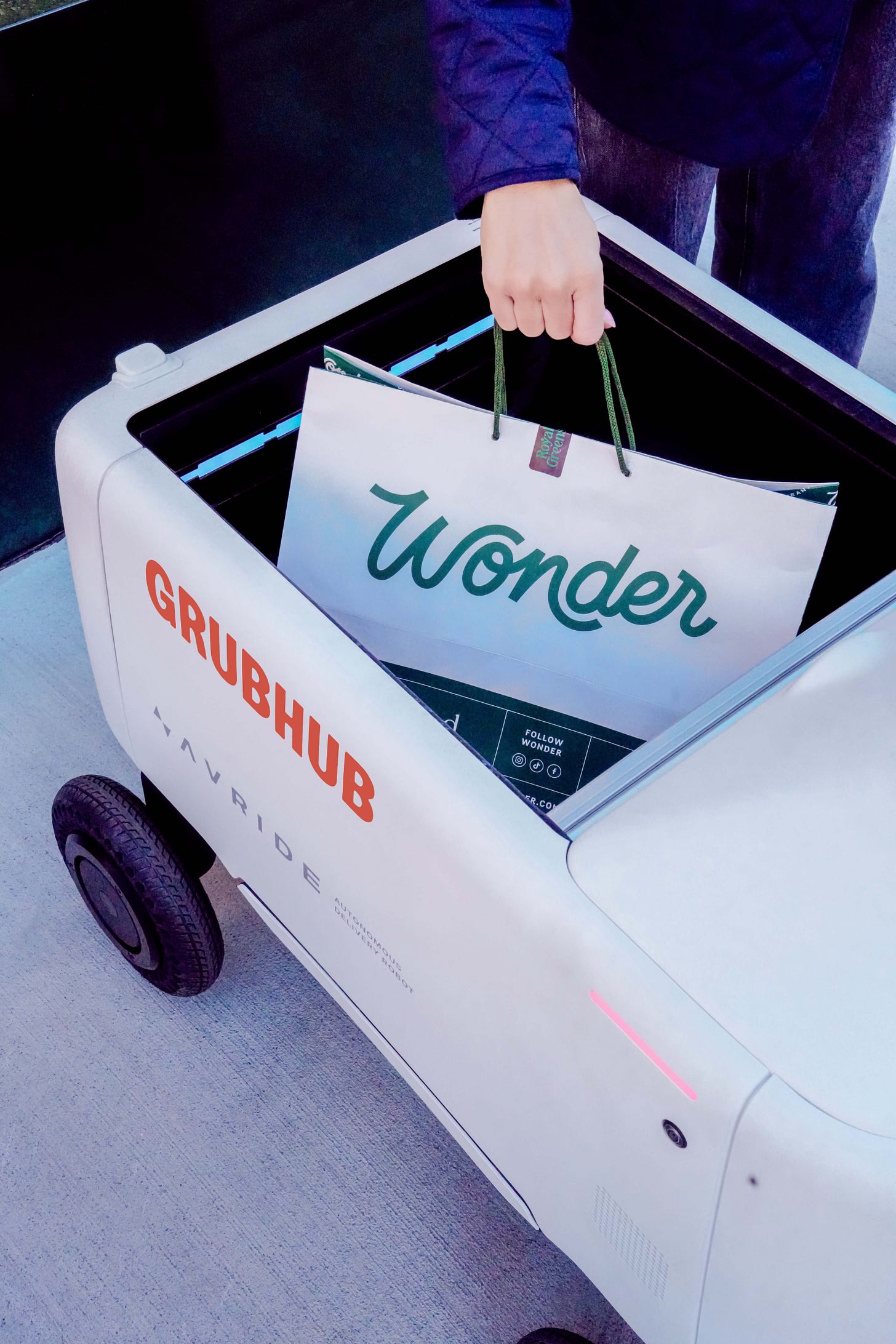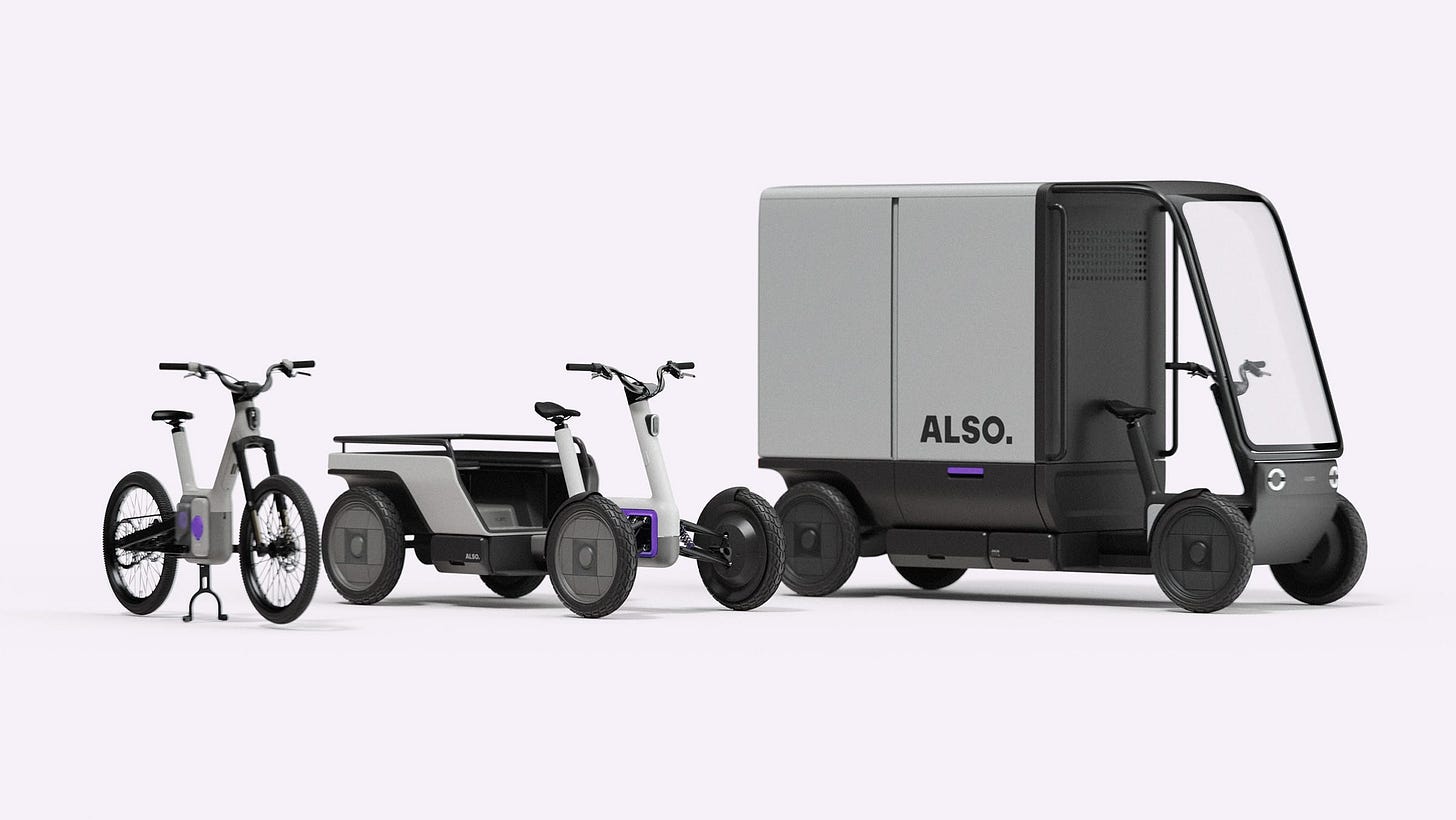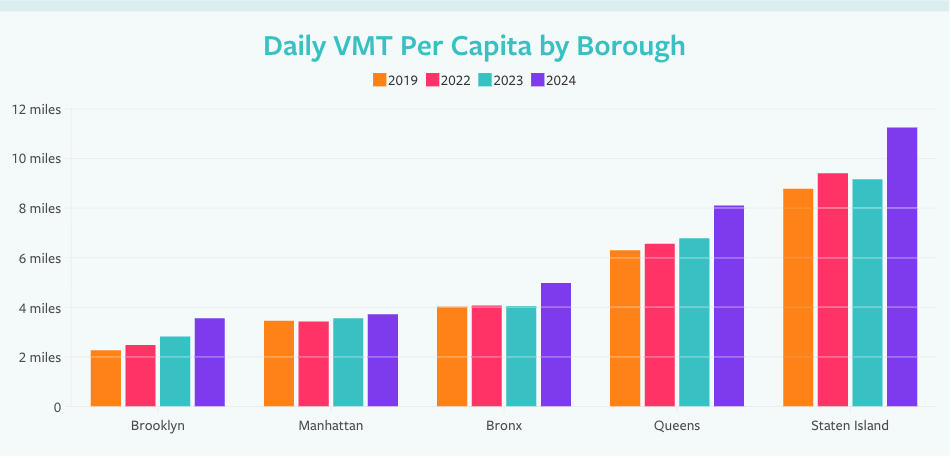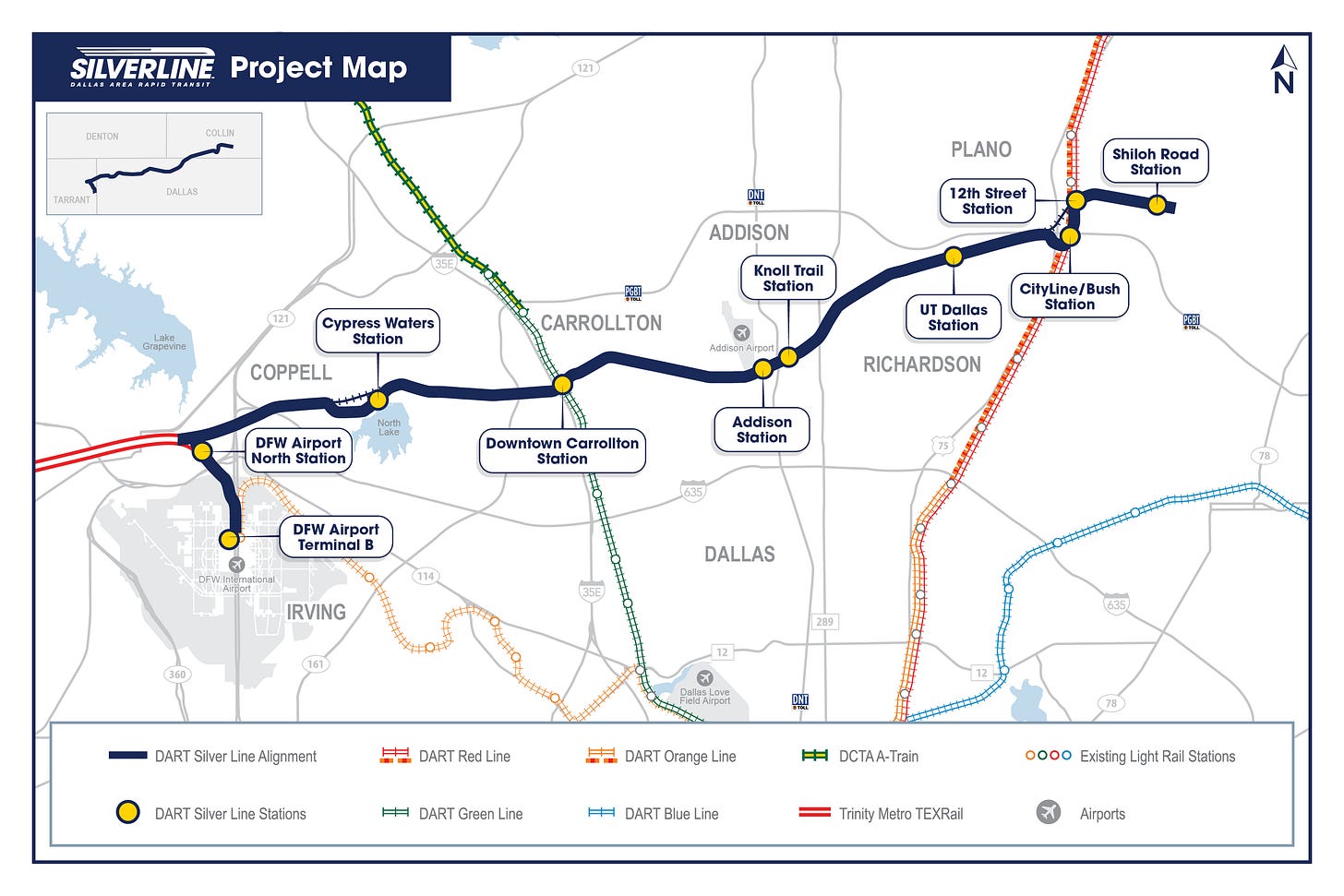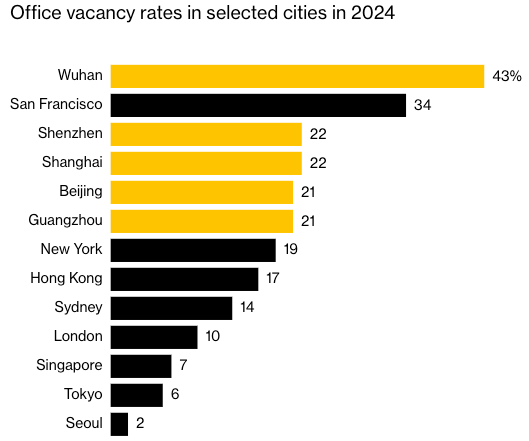What Will the Rise of AVs Mean for the World’s Mega-Cities?
Grubhub + Avride, Also reveals equads, a new congestion record
First off, I’d like to say hello to all our new readers — folks who joined us over the past month at amazing events in Detroit, NYC and SoCal. It’s been an amazing few weeks of conversations about the future of mobility, but the topic of autonomous vehicles in urban metropolises — the focus of our Brooklyn summit earlier this October — has been particularly top of mind.
Autonomous vehicles are finally heading for the world’s great cities. Yes, we’ve seen them roaming the wide, desolate streets of suburban Phoenix for years now, but with Waymo and its competitors headed to NYC, Tokyo and London, AV operators and regulators will need to consider a whole new set of conditions. What will the introductions of autonomous vehicles mean for pedestrians and public transit users? How will self-driving cars interface with congestion pricing policies?
At Curbivore’s Urban Autonomy Summit, participants also explored all the weighty second-order effects: how will fleet operators find the space to charge their power-hungry vehicles in dense locales; what sort of safety monitoring systems will keep occupants and road users safe and what does that mean in an era of surveillance concerns; would a floor of robotaxis affect the fares that riders pay and the take-home pay of ridehailing drivers? This is an inflection point, where the rise of AVs and well-crafted policies could make our cities better, while a chaotic roll-out could just lead to ever-more traffic. If these questions are important to you too, please do check out the recordings from the summit.
And in just the past few days, we continue to see more and more developments, showing just why we’re at such a critical juncture from a regulatory and consumer-acceptance standpoint: MOIA and Germany’s Federal Ministry of Transport are launching AVs in Berlin, GM is bringing eyes-off driving to its cars by 2028 and Nexar’s new Beyond ADAS model is improving incident prediction accuracy. (Meanwhile, Forbes is looking at the equity angle of all these AV rollouts, including a nice shout out to our summit.)
HOT INDUSTRY NEWS & GOSSIP
Grubhub & Avride go off campus: Grubhub is finally going all-in on autonomy, as it expands it partnership with Austin-based Avride to include deliveries outside of college campuses. The initial deployment is in Jersey City, starting with Grubhub owner Wonder’s multi-restaurant storefront. I caught up with PJ Poykayil, SVP of Customer Delivery Operations at Wonder and Grubhub, to get some details:
Jonah Bliss: Grubhub has a few autonomy partners working with it on college campuses. What led it to choose Avride for its first operation in a city?
PJ Poykayil: Avride was a natural choice for this pilot given its strong track record in urban environments and our existing partnership. We currently work with Avride on two campuses and have completed over 100,000 orders together. Their performance and reliability make them well-suited to help us bring robotic delivery to Grubhub and Wonder customers in Jersey City.
How many robots will this pilot include?
The pilot will launch with five Avride robots, with plans to scale as demand grows.
Is Grubhub looking to expand this pilot to other, non-Wonder storefronts in the Jersey City area?
Yes, pending a successful pilot, we aim to expand robot delivery to additional Grubhub merchants in Jersey City. We’ll continue working closely with Avride, our Government Relations team, and city officials to ensure alignment as we grow.
What has Grubhub learned from its on-campus delivery robotics operations that informed this launch?
Since first offering robot delivery in 2021, over a million Grubhub orders have been delivered via robots across dozens of universities throughout the country, so our institutional knowledge in this space is second to none. With Avride, we also operate the largest single-site robot food delivery program in the country at Ohio State University, with more than 120 active robots completing up to 1,300 deliveries a day. On top of our technical expertise, Jersey City’s compact layout, high population density, walkable infrastructure, and tech-savvy young adult population offers a similar environment to a college campus, making it ideal for robot delivery. We look forward to applying what we learn from this pilot to expand autonomous delivery into additional markets, furthering our commitment to innovation and providing faster, more reliable service to customers nationwide.
In other Avride news, the startup has secured up to $375 million in new funding from Uber and Nebius. Uber has also deployed Avride’s delivery bots in the Jersey City area; each 3PD has an exclusive fleet of bots serving their orders in the NYC suburb.
Rivian’s making a delivery e-quad, Also: Rivian has finally revealed what Also — its oddly-named, micromobility skunkworks investment — has been up to. Its biggest product will be the TM-Q pedal-assist e-quad, which Amazon has signed on to use for deliveries of up to 400 pounds. Also is also making an eye-catching step-through e-bike — the $4,500 TM-B — as well as batteries, helmets and more. In less happy news, Rivian is also cutting its workforce by 6%.
Insurance problems: As if American transit operators didn’t have enough to worry about, now commuter rail liability insurance (required under federal law) is expected to jump 24% in the next year. While lawmakers are looking to delay the funding deadline, that only kicks the can down the road. In recent years we’ve seen climbing insurance costs bite everything from homes to TNCs and private autos… perhaps we’ve been mispricing risk for years?
Schrödinger’s tunnel? While the Trump administration has insisted that NY-NJ’s $16 billion train tunnel is “terminated,” local officials insist the project is very much still alive. Maybe Amtrak is getting into quantum superpositioning? The two sides are fighting about a number of projects, with the Feds also demanding that NYC halt work on a new project to convert 34th Street into bus-only lanes. While we all dither, new OpenPlans data shows that VMT in NYC jumped 16% from 2005 to 2023; hopefully congestion pricing is turning that around…
Bad traffic bad: TTI’s Urban Mobility Report has been updated for 2025, showing domestic congestion reaching a new record. Last year, the average American lost 63 hours to delays, up 16% over the past five years. The report also confirms the anecdotal wisdom that post-Covid, traffic is lighter on Mondays and Fridays.
Curb cash: Curb management pioneer Automotus has raised a new funding round, with money coming from Santa Barbara Venture Partners. Automotus’ parking enforcement and curb-access tech is now deployed by the likes of Los Angeles, Omaha, Pittsburgh, Sacramento Airport and more.
Circumferential rail hits the Big D: Greater Dallas is cutting the ribbon on the Silver Line, a new hybrid rail / DMU service that connects the region’s northern suburbs with DFW airport. While the new project spares non-CBD-bound travelers from having to make slow transfers in Downtown Dallas, its 60 minute off-peak service frequency sadly reduces much of those time savings.
Great green north: Canada’s getting a new, sustainable way to make deliveries, as Harbinger’s medium-duty electric and hybrid-electric vehicles are now available for purchase across all provinces and territories, in collaboration with Safetek Specialty Vehicles. In sadder news, GM is ending production of its Brightdrop electric vans, which had been made in Ontario, blaming tariffs and the expiration of tax credits.
Anti-delivery? Bolt, Europe’s scrappy ridehailing and food delivery platform, is launching a new feature called DineOut, geared towards getting consumers to discover and eat in-person at local restaurants. We’ve recently seen DoorDash and other 3PDs launch similar products, I wonder how much these are being driven by true consumer demand, versus just serving as positioning to show restaurateurs that they’re “on their side.”
CBD woes in Wuhan: Downtown business districts aren’t just hurting in America; China’s mega-cities are also feeling the pain. CBD vacancy rates are as high as 43% in cities like Wuhan, with other locales like Shenzhen and Shanghai suffering as well. Also ailing: the foreign investors that funded this office construction glut a few years prior.
A bank on wheels: Lyft just rolled out a cash rewards program, offering users 2-5% cash back on rides (plus other goodies) when they store $100 or so in their Lyft Cash wallets. An intriguing proposition for power users, but less frequent riders will find they’re better off just putting that skrilla in a money market account…
Maybe AI can fix our overly litigious society? San Jose is testing a new camera and artificial intelligence network to alert city officials about potholes and other street maintenance issues. I’ve heard time and time again from mobility entrepreneurs that want to use the sensors on their delivery bot/scooter/AV/app to notify cities about road conditions, and the sad response is that usually the municipalities don’t want to know about more of these issues, as they already don’t have the funds to fix the ones they do know about, and they’re worried about being on the hook for liability claims if they “ignored” a known problem.
A few good links: Turo starts offering long-term car rentals as an alternative to leasing. Electric aircraft startup Beta Technologies eyes $825M IPO. Federal Motor Carrier Safety Administration withholds $41M in funding from California in fight over English language proficiency enforcement. Cool parents pick cargo bikes over minivans. Example 12,046 of why we can’t build anything: Metrolink run-through tracks project stalled by intransigence of BNSF and 200-person municipality. Tehran’s newest metro station honors the Virgin Mary. Post-fire, Pacific Coast Highway in Malibu gets much-needed safety upgrades. Boston picks Passport for parking and curb management upgrades. This feels like a headline from 2022: Prague to ban e-scooters. State Senator Scott Wiener looks to oust octogenarian Rep. Nancy Pelosi (see my interview with Sen. Wiener from last week.) Speaking of, a new map visualizes all the new home-building capacity unlocked by SB79. Near Los Angeles, the world’s largest wildlife crossing is getting its native plants. NYC DOT Freight Mobility team seeks Deputy Director and Freight Planner. Redwood Materials raises $350M. Starbridge raises $42M to help startups sell to governments. Show Me a Hero meets The War on Cars: parking garage collapse in Westchester, NY traps and crushes dozens of cars. Electrify America adds realtime charger status to Google Maps. NYC’s seat-back Taxi TV goes MAGA, as owner Curb swaps out local news for Newsmax. (Must be dissonant to have the TV blare about what a scary liberal hellscape NYC is, as you drive around and admire people going about their days.)
Until next week!
- Jonah Bliss & The Curbivore Crew


